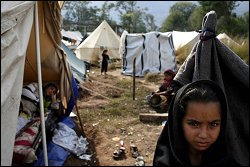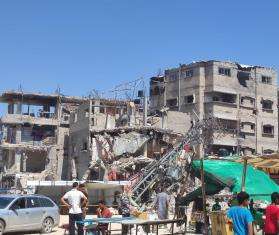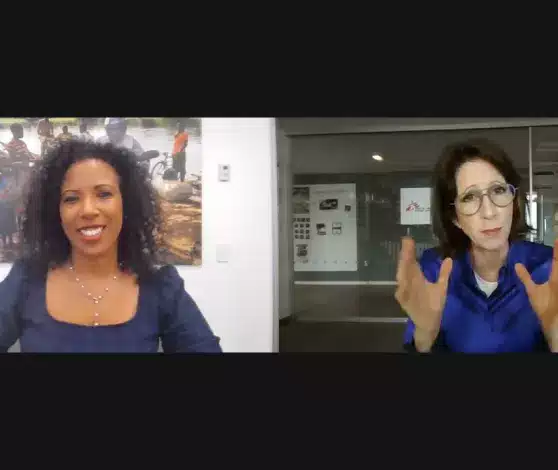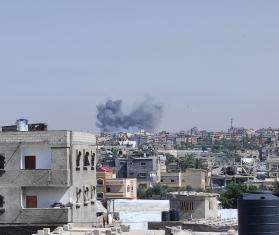Less than a week after the Asian earthquake of October 8, Doctors Without Borders/Médecins Sans Frontières (MSF) began to offer psychosocial care to traumatized survivors in northern Pakistan, the area worst hit by the disaster. In several tented camps in Muzaffarabad and neighboring Charakpura, people started to share their experiences with two MSF mental health experts. Marise Denault, an MSF social worker and mental health specialist, explains the situation.
|
– Marise Denault |
What was your impression when your team arrived in Muzaffarabad a few days after the earthquake?
When we arrived here three days after the earthquake, what we could see was that people were in a state of shock. They were dazed. It was a picture of general confusion. It was difficult for the people at that stage because the most basic needs such as food, shelter, and medical aid were not covered. Also, with all those bodies lying under the rubble, people were and are in many cases still not able to see the family members they lost. This makes it even more difficult for them to come to terms with what happened and adds to the general stress.
How has the situation evolved since then from a mental health point of view?
Many are still in their survival mode, they are talking but they haven't fully grasped what happened and the full impact of it. They are still holding back their emotions. And there is probably a bit of denial, too.
How can the symptoms of post-traumatic stress manifest themselves?
It can be anxiety, nightmares, loss of interest, sleeping or eating disorders, palpitations, or headaches. A 30-year-old woman complained about headache. The doctor did not detect any physical problems, but eventually found out that the woman had lost four sons in the earthquake, all of them under four years old. That is the type of stories that you find here. But, understandably, it is difficult to start counseling at this stage.
Can you give an example of what people are telling you?
Many people are particularly sad that so many children died in schools. They feel the loss of this future generation. A woman told me about her daughter who was a teacher in the school of Chehla Bandi on the outskirts of Muzaffarabad. For three days, the mother could hear her daughter cry for help under the rubble. When the young woman was finally found she had died. Obviously, the mother is completely distraught. Her daughter's voice is still ringing in her ears. She cannot focus on anything else than that. A person like her will need intensive individual counseling.
What were the first steps in terms of psychosocial support?

Muzaffarabad, Pakistan, October 25, 2005. New University campus IDP camp.Photo © Bruno Stevens/Cosmos |
On Friday, October 14, not even a week after the earthquake, we started mental health counseling in Muzaffarabad's university compound, a place where about a thousand homeless had gathered in a tented camp. We chose this camp setting to initiate the program because there, people's physical needs such as food, clothes, health care, and shelter are addressed to a certain extent. Meaningful mental health support cannot start unless basic needs are being met.
Practically speaking, how do you do your work?
What my colleague Adrienne and I do in these first days is to walk around between the tents introducing ourselves and explaining what we do. On many occasions, people just start telling us their story. We're talking to about a hundred people a day, to some for a longer time and to others only a few minutes. We do individual counseling, others we meet in groups that gather spontaneously. In this way, we are also getting a sense of how affected people are. Meanwhile, we have set up a tent that offers some privacy for individual counseling. Soon, we will invite people to share their experiences during group sessions. We are planning to do a children's group and another one for widows. We have started to identify local people among the displaced and train them as MSF mental health counselors. Once they're trained we will be able enlarge the scope of the program.



